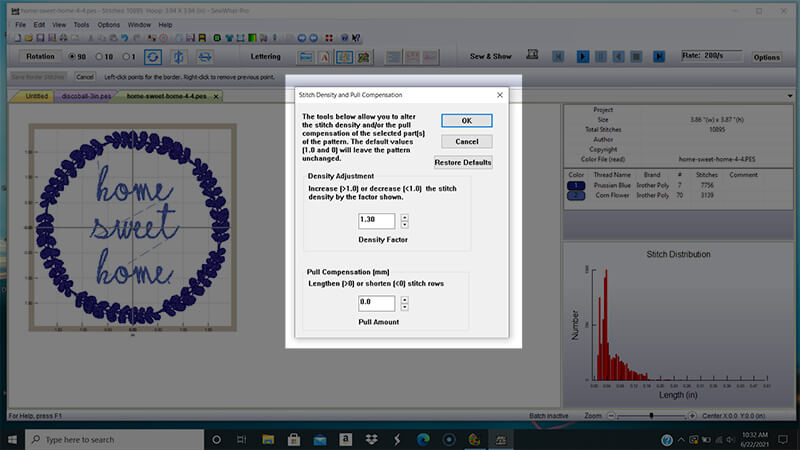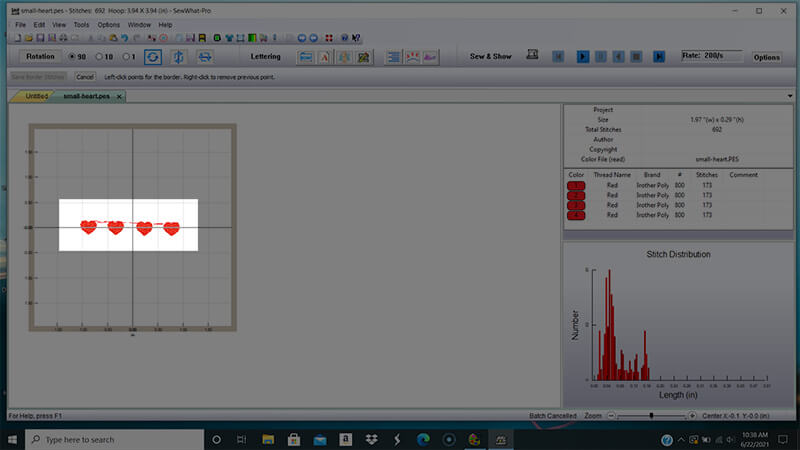
#SEW WHAT PRO VS SEW ART PROFESSIONAL#
Same goes for high-budget corporate events.Ī giant New Year’s Eve show can bring in even more cash.Ĭonsistent gigging is key to a professional singer’s income. Most singers should be demanding a fee of $100 to $200 per show.Ĭertain opportunities like weddings can pay $500 per show. $50 would be for either a quick gig, or a gig for a small artist that just couldn’t pay them well. Getting back to professional singers – most singers earn their income on live performances.įor standard bar gigs, cover gigs and hired musician gigs, singer will earn anywhere from $50 to $300 per gig. But these are the kinds of things you should be thinking about as a singer. Now, Britney built huge career on that song, so it was worth it. In almost every country except the United States, performers on tracks (singers, backing musicians, engineers, etc.) will earn a Neighbouring Rights Royalty.īasically, a singer will earn whatever their one-time fee is for singing the song. When it is played on the radio, Max Martin earns the royalties. Off the top of my head: Frank Sinatra, Elvis Presley, Whitney Houston, Marvin Gaye, Rihanna.Īll of these artists are singers, not songwriters.įor example, “…Baby One More Time “ was written by Max Martin and performed by Britney Spears.īritney Spears does not earn any public performance royalties from this song. Since the dawn of the music industry, there have been famous singers who sang songs they didn’t write. How Much Do Singers Make On A Song They Didn’t Write?

Similarly, if you are teaching a singing workshop or something similar, you get to set your rate however you like.Īn average day rate can be anywhere from $100 to $500 depending on the work, the person being hired, and the budget of the person doing the hiring. If you are singing for a musical theater production, your day rate is probably higher. There are many situations in which singers and musicians are paid a day rate.įor example, I was hired for a live music video (along with several other musicians) and was paid a day rate of $150 for around seven hours of work. Make sure you charge what you feel you are worth. Not all artists will pay their employed musicians the same. Generally, $150 per player per song is an acceptable rate. This can be anywhere from $50 to $300 per song. Singers should receive the same or a comparable per-song rate as the other musicians performing on the track. will often get hired to sing on demos that songwriters are pitching to artists.

Professional singers in places like Nashville or L.A. For example, a friend of mine just hired a singer to sing harmonies on a track because she has such a strong country voice. Usually the singer in question will be hired based on their professionalism, experience in the studio and vocal quality. When songs are being recorded, there is often a need for backup singers and/or singers who can sing harmony. Of course, if you’re singing on recordings, you’ll earn some royalties, but they are the royalties earned by hired musicians, not the royalties earned by writers.Īll that being said, there are plenty of opportunities for singers. They get hired for a purpose, paid, and that’s it.

Professional singers are like professional session musicians. The reason we need to make this distinction, is that singers who are also writing their own songs, recording them, selling their songs, selling merch, and touring, have other revenue streams.Īrtists make money on royalties, merch, and ticket sales, amongt other things. Generally, people who do this kind of work will also get featured as a singer on tracks, but you’re not an artist or a songwriter first and foremost. You do things like: sing backups on gigs and recordings, tour as a hired member of a band, play night clubs, weddings and corporate events, sing at funerals or otherwise. You may even be in an original band, even if it's not your main thing.

You might do that sometimes, but it’s not your main gig. If you’re looking to become a professional singer, you’re not necessarily writing songs or performing sets of original music. For our purposes, I’m treating the term “singer” the same way I would treat the term “guitarist”.


 0 kommentar(er)
0 kommentar(er)
